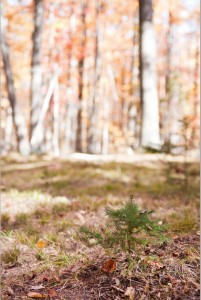“They paved paradise and they put up a parking lot…” — Joni Mitchell, Big Yellow Taxi
I remember as a child the fight my grandfather had when an interstate highway was routed through his farmland. Southeastern Minnesota was rich in agriculture at that time, and the planned route would cut directly through his best acreage for crops. It was not pastureland, as the reports the highway department filed stated, so the eminent domain fight began. By the time it was over, my grandfather was paid less than his land was worth. The route was not changed, and it was not long after that time that my grandfather’s farm was no longer viable.
When you are on this highway traveling east on the area that used to be his farm, it now looks barren. It used to have hay and alfalfa fields that secured the soil and prevented erosion. We used to hunt these fields for pheasant in the fall, and deer would graze in them.
What is a national park worth? Clean water? Breathable air? Trees, birds, fish, abundant wildlife, nature’s glory? To many like myself, they are worth more than a corporation’s profits or a politician’s re-election. They are the future for our world, just as our children. And just as our children, they are equally fragile and our responsibility to protect.
When it comes to environment against corporations, landowners against developers, the winner is almost always someone’s bottom line. Corporations choose where they want to build, cities accommodate their requests by condemning homes or city parks. Arizona was attempting to push through bills to allow mining in the Grand Canyon before public outrage caused them to retract them. Imagine this in every national or state park across the country.
![Photo by Berit from Redhill/Surrey, UK [CC-BY-2.0 (http://creativecommons.org/licenses/by/2.0)], via Wikimedia Commons](http://occupyworldwrites.org/wp-content/uploads/2014/01/Waterdrops_inside_The_Animal_Flower_Cave_Barbadosrbados_48_6908255285-300x191.jpg)
Photo by Berit from Redhill/Surrey, UK [CC-BY-2.0], via Wikimedia Commons
Earth Day 1970 achieved a rare political alignment, enlisting support from Republicans and Democrats, rich and poor, city slickers and farmers, tycoons and labor leaders. The first Earth Day led to the creation of the United States Environmental Protection Agency and the passage of the Clean Air, Clean Water, and Endangered Species Acts. In 1990, the observation became an international movement. Since that time, the rest of the world has embraced Earth Day annually. Although many in the US talk environmentalism on this day, the rest of the year is spent watching Congress try to abolish the EPA, repeal legislation that promotes alternative energy and reject climate change science as fact, instead clinging to “job-killing regulations” claims to justify corporate plundering of our natural resources.
Does your high school have a conservation or gardening class? Have you thought about how big your carbon foot print is? How can you reduce it? Does your employer recycle? How many high rise upscale apartment buildings do we need to build? Why are we not refurbishing old buildings and abandoned factories instead of increasing the seizure of green space in our cities and countrysides? Is your state willing to build a sports stadium before tackling the homeless problem? Do you wait until just that one day each year to think about these things?
If you do not think of every day of the year as earth day, there will one day come a time you will wonder what on earth happened to the earth.


